Are you looking for a solid foundation for your technical support agreement? Crafting the right letter can set the tone for a successful partnership, ensuring that both parties understand their roles and responsibilities. With clear terms and open communication, you'll alleviate potential misunderstandings and foster a collaborative environment. Ready to dive deeper into how to create an impactful technical support agreement? Keep reading!
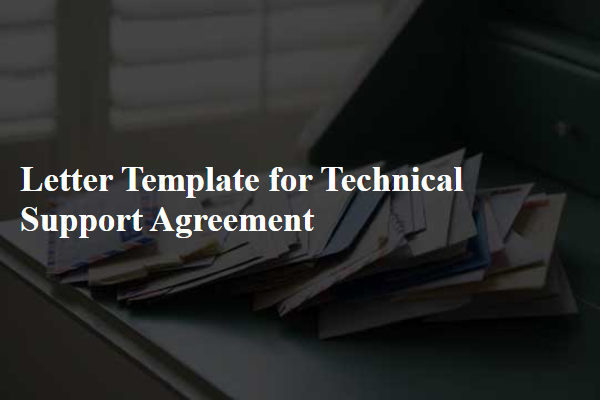
Clearly Defined Scope of Services
The technical support agreement serves as a formal contract outlining clearly defined scope of services aimed at ensuring optimal operational efficiency and maintenance of user systems. This agreement typically encompasses essential services such as troubleshooting network connectivity issues, addressing software application errors, and performing regular hardware diagnostics for devices like desktops and servers. Response times are often stipulated, usually within a 24-hour window for critical issues, alongside the provision of ongoing training sessions (often quarterly) to enhance user proficiency with the technology. Additional provisions may include software updates, security patches for vulnerabilities, and access to a dedicated support hotline available during business hours (typically 9 AM to 5 PM) to facilitate timely assistance. Each project phase is documented with defined deliverables to monitor performance metrics, ensuring that all expectations are met consistently.
Response Time and Resolution Targets
Technical support agreements establish essential criteria for response times and resolution targets. Response time refers to the duration taken to acknowledge a support request, typically outlined in hours, such as a 4-hour response window for critical issues. Resolution targets indicate the expected time frame for resolving the issue, categorized by severity levels, like a commitment to resolve high-priority incidents within one business day. These targets are often aligned with service level agreements (SLAs), ensuring accountability and structured support from vendors or service providers. Key to effective technical support, these parameters help maintain operational efficiency for businesses utilizing technology, especially within industries heavily reliant on IT infrastructure like finance and healthcare.
Service Availability and Maintenance Schedules
A technical support agreement outlines the availability of services and maintenance schedules crucial for ensuring optimal performance of systems and software. Standard service availability typically ranges from 8 AM to 8 PM on weekdays, covering a total of 60 hours per week, excluding public holidays. During this period, support technicians based in major regions (such as North America, Europe, and Asia) are accessible for addressing technical issues. Regular maintenance schedules, often set at monthly intervals, include critical updates, security patches, and performance assessments to prevent system outages. For example, routine maintenance may occur on the first Monday of every month, allowing teams to efficiently plan downtime and minimize disruptions to business operations. Emergency support can also be accessed through a 24/7 hotline for urgent issues, ensuring that service continuity is prioritized.
Confidentiality and Data Protection Clauses
Confidentiality and data protection clauses in a technical support agreement serve to ensure that sensitive information remains secure. Confidential information includes proprietary software codes, client databases, customer service interactions, and internal communication protocols, such as emails exchanged during support sessions. Data protection measures comply with regulations like the General Data Protection Regulation (GDPR), outlining responsibilities regarding personal data processing. Organizations must implement encryption methods, secure access controls, and regular audits to safeguard client data. Additionally, clauses should address the potential consequences of breaches, including penalties, damages, and the obligation to notify affected parties within specific timeframes, typically 72 hours for GDPR compliance.
Termination and Renewal Conditions
Termination and renewal conditions are crucial elements in any technical support agreement. Termination clauses specify the circumstances under which either party can end the agreement, typically requiring written notice 30 days in advance for either the service provider or the client. Conditions may include breaches of terms, failure to pay, or unforeseen circumstances such as business closure. Renewal conditions outline the process for extending the agreement, often detailing automatic renewals unless canceled within a specified timeframe, such as 60 days before expiration. This ensures continuous support while providing both parties the ability to reassess their needs and service quality annually. Clear communication during this period can help prevent disputes and facilitate smooth transitions.

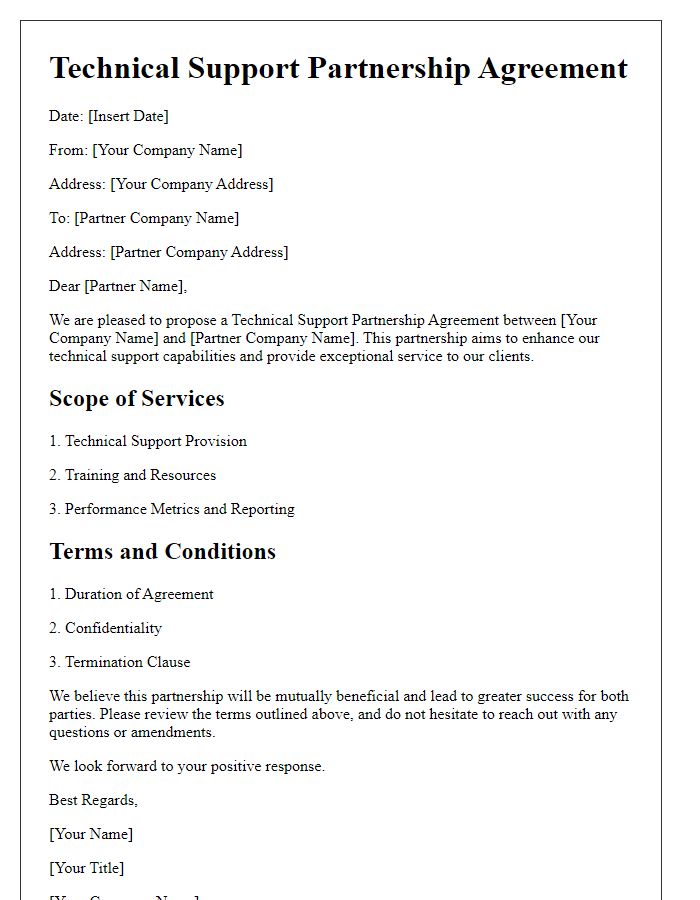
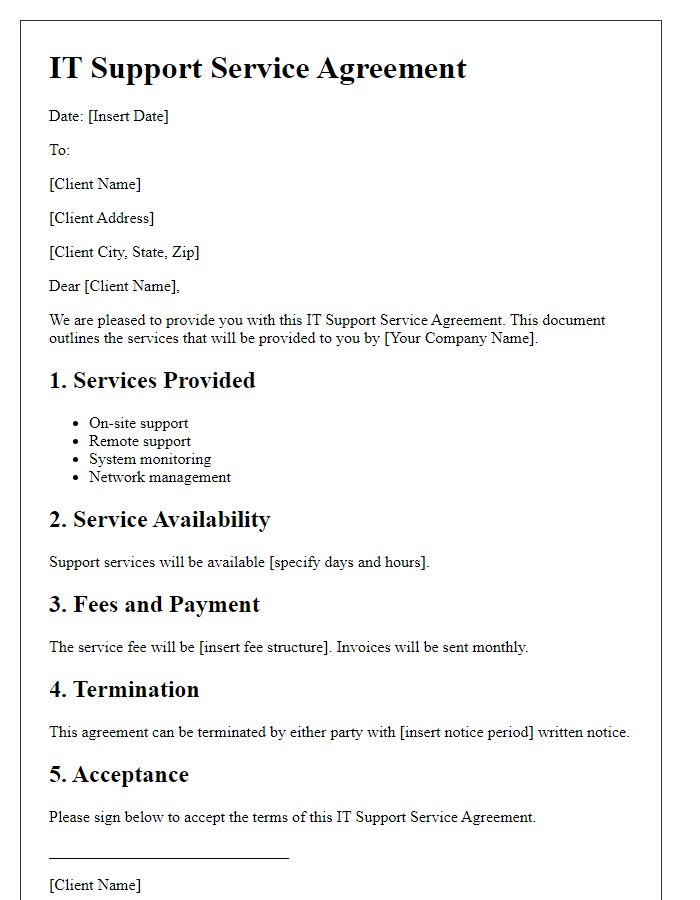
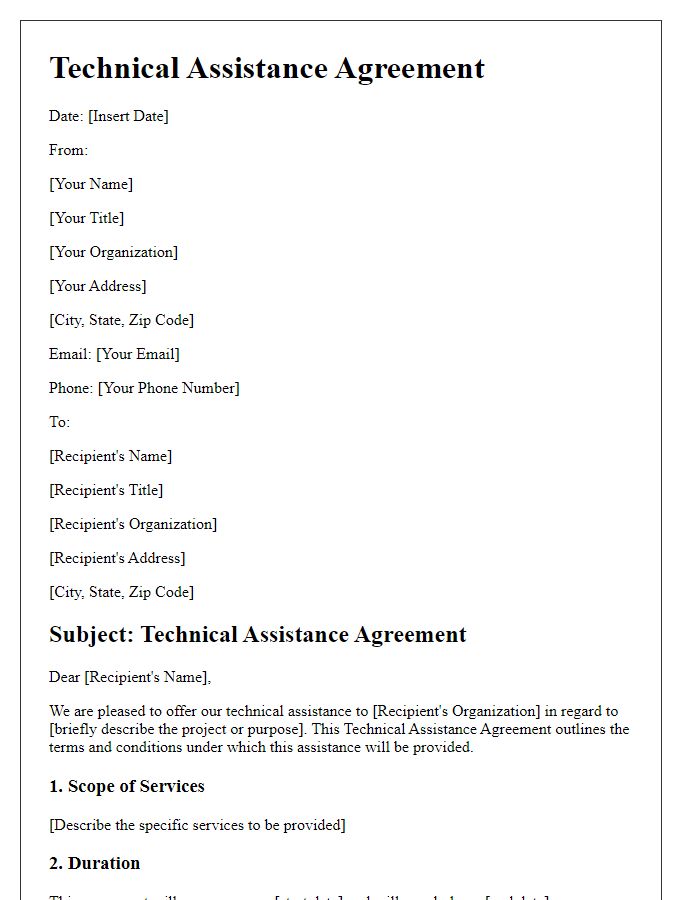
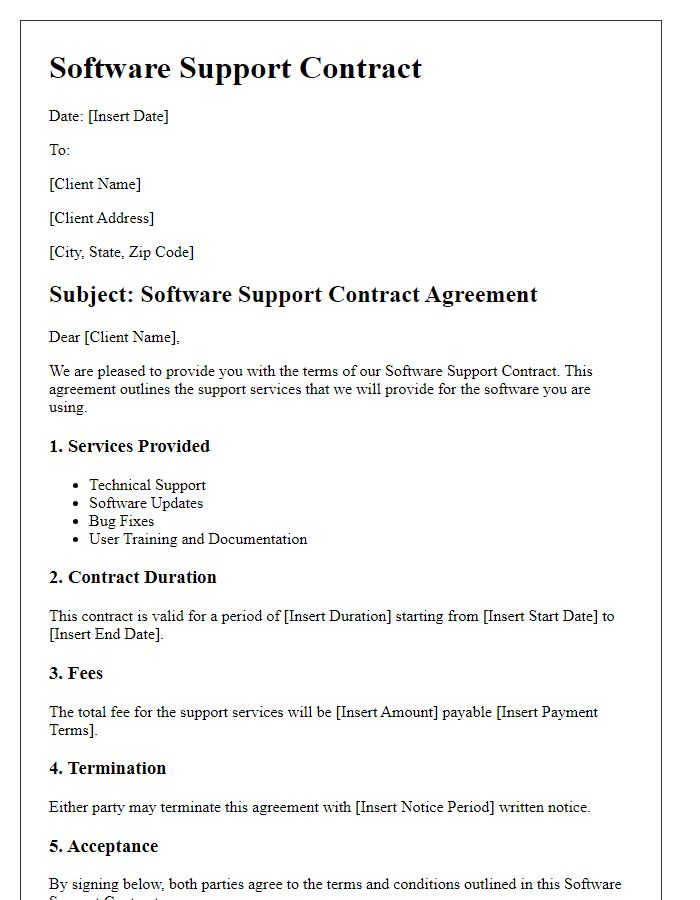
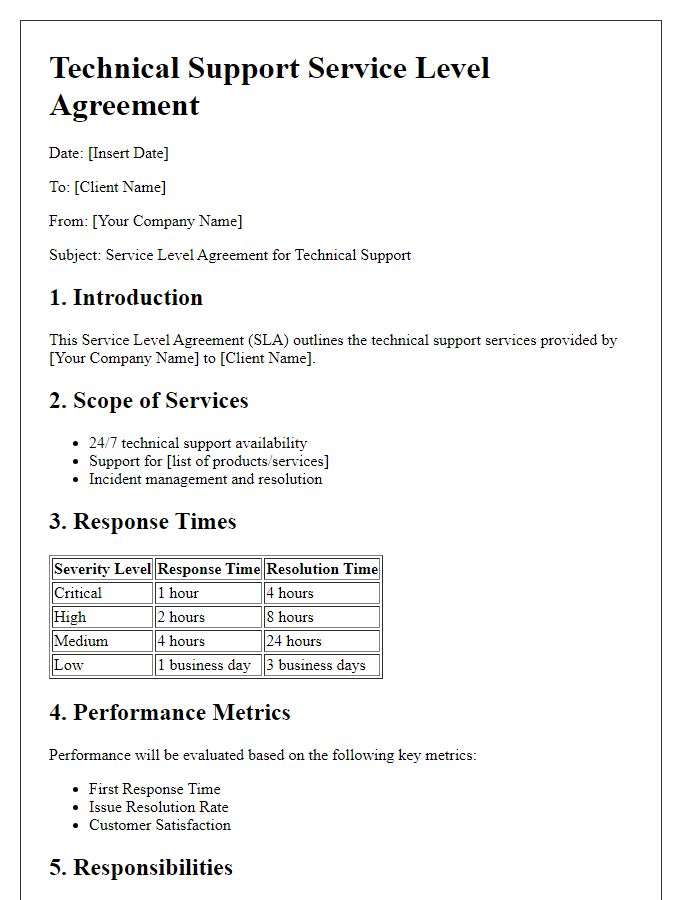
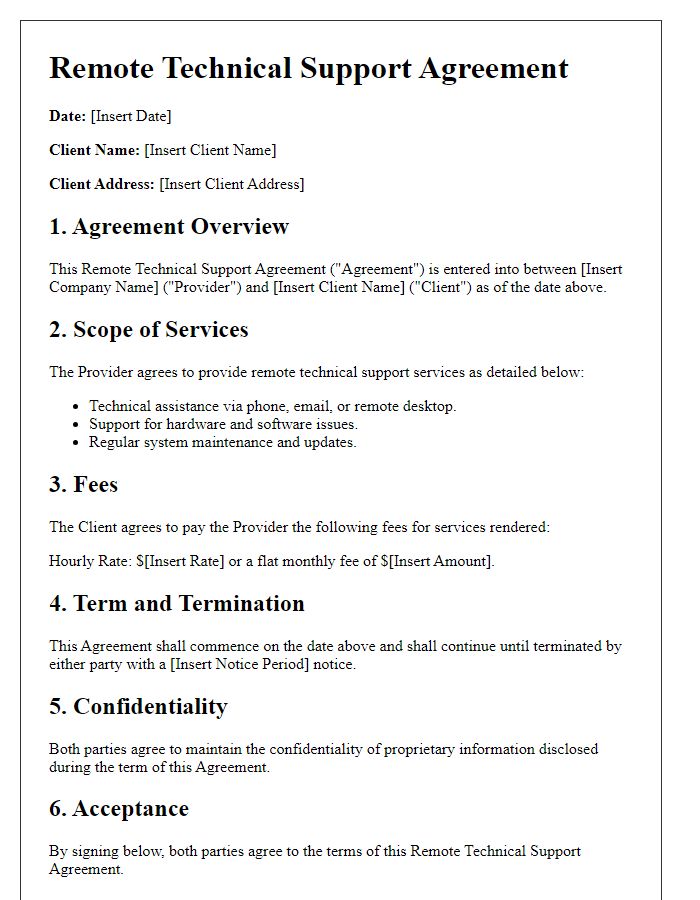
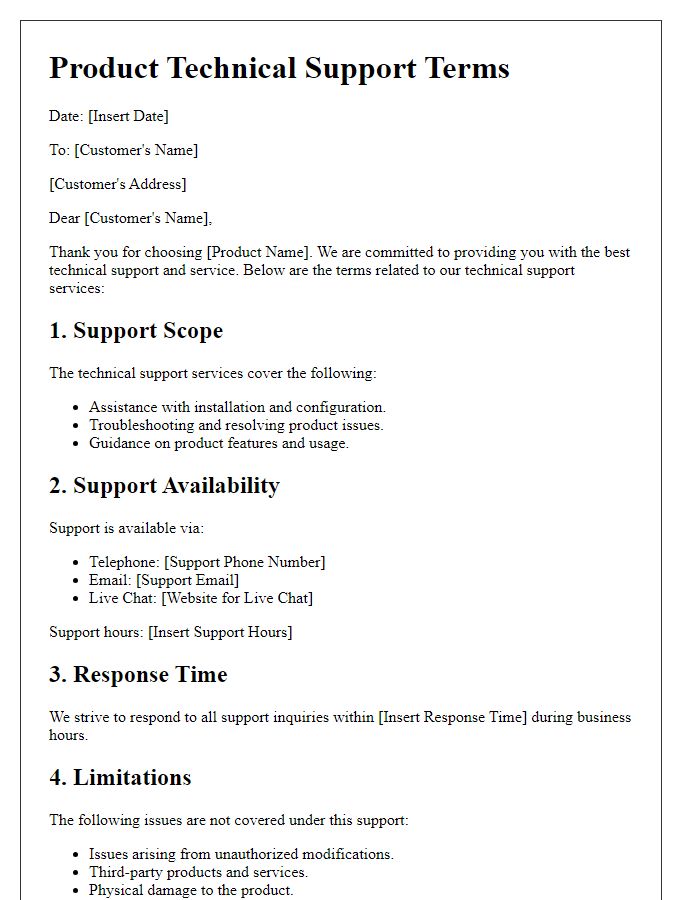
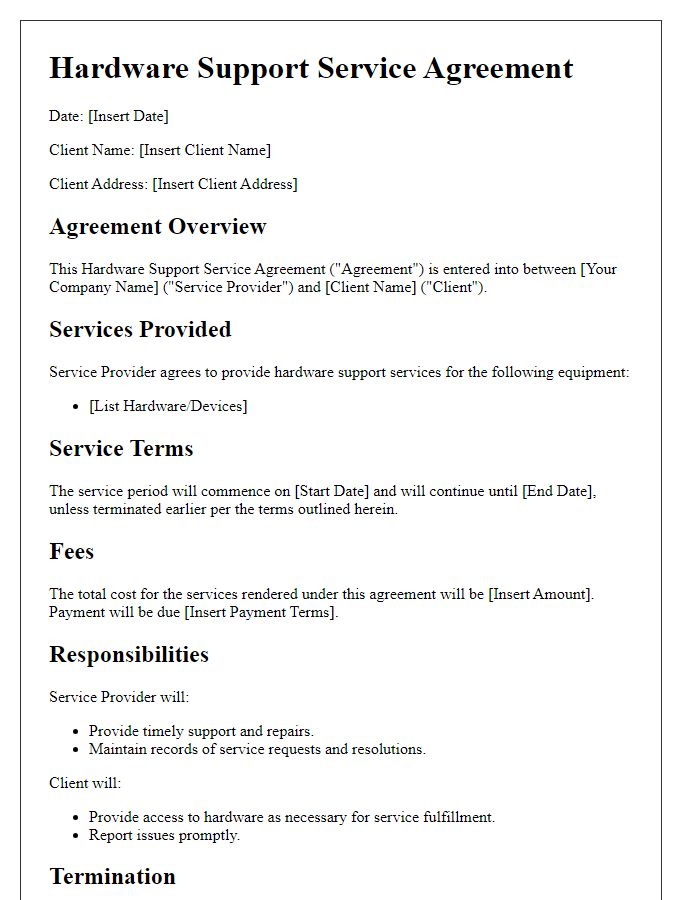
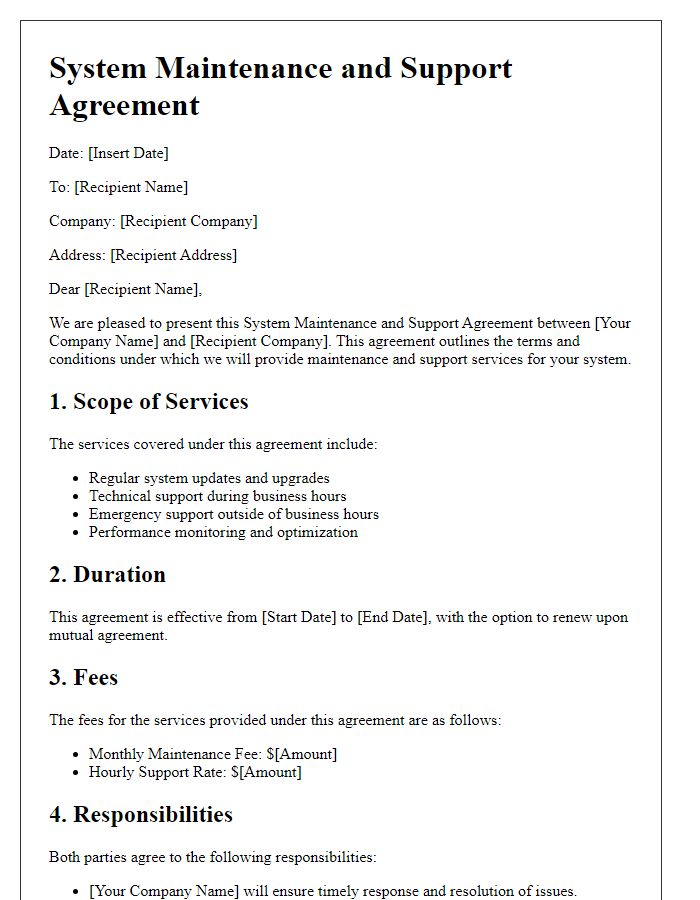
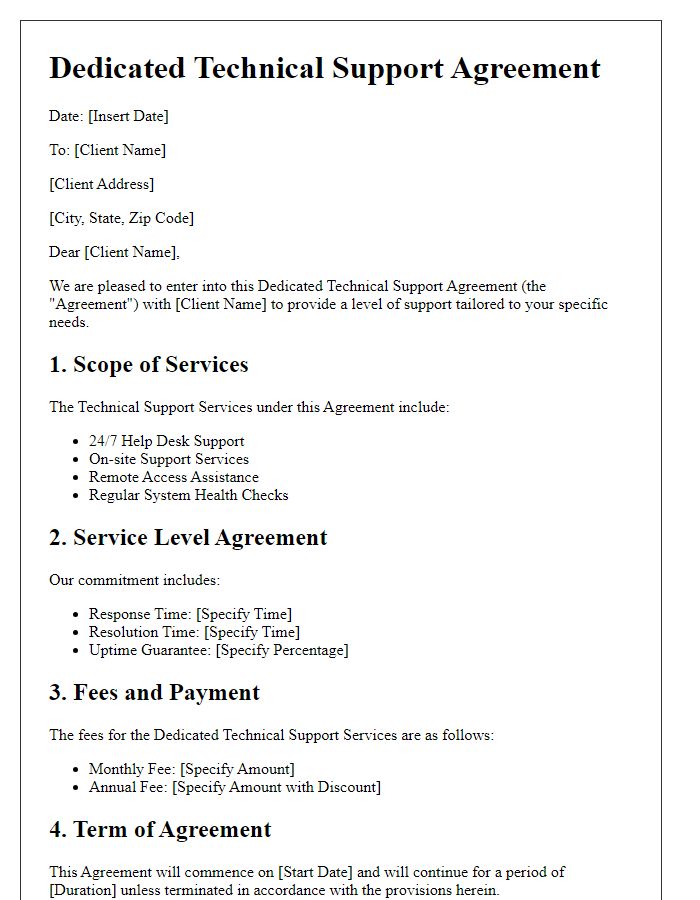


Comments